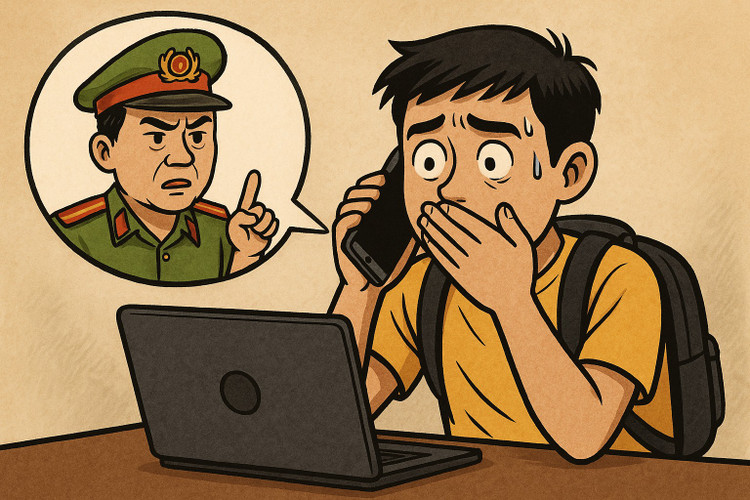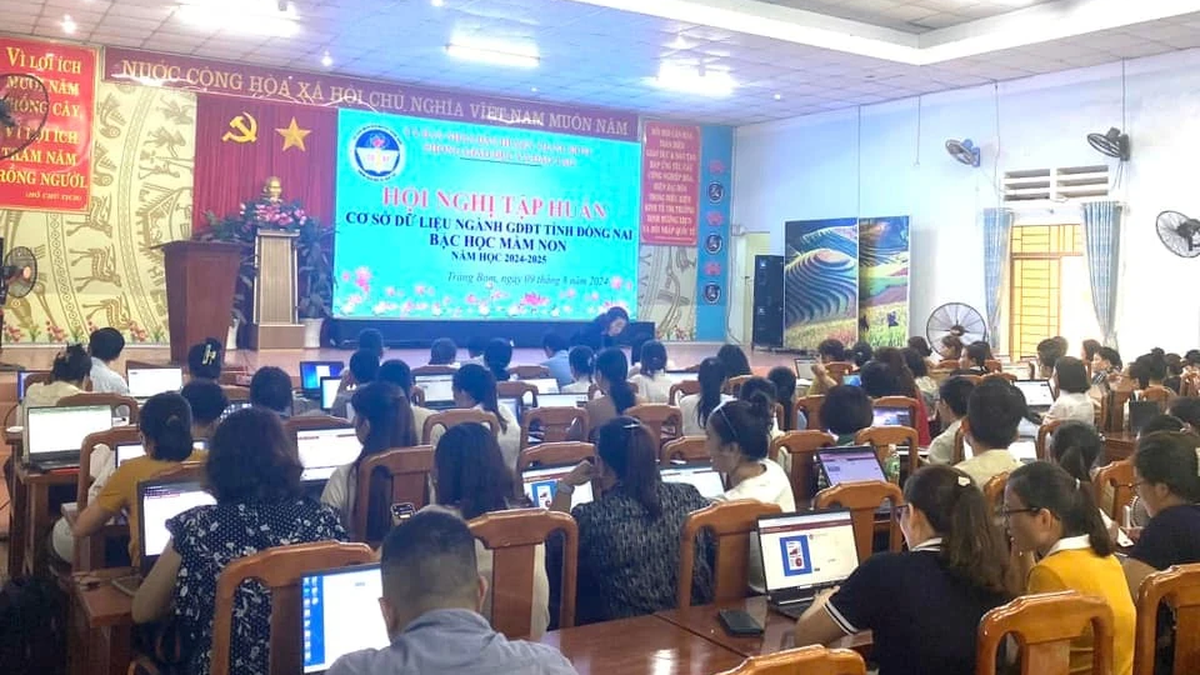Recently, a series of online kidnapping scams using the trick of impersonating police officers and manipulating psychology over the phone have caused many people, especially students, to fall into traps and have hundreds of millions, even billions of dong, stolen.
Such incidents are clear evidence of an alarming reality: the lack of vigilance and understanding of many young people against high-tech fraud.

Many young people are psychologically manipulated by the trick of "cooperating in the investigation" from a fake scammer. Photo: A05
It is undeniable that criminal groups are increasingly using very sophisticated tricks, well-planned and perfectly scripted. However, what makes them so successful lies in the immaturity, gullibility and lack of situational handling skills of many young people.
Just a phone call with some personal information (which they collected in advance), a fake "police" video , threats of "arrest", making the victim panic and obediently follow all requests.
The danger is that the loss of composure and the mentality of "fear of trouble, fear of being criticized" make young people isolate themselves, not share with family and friends, creating conditions for criminals to "remotely control" and completely manipulate. Not only are they cheated of money, they also become "tools" to cheat relatives.

"Fake investigators" make video calls to manipulate victims' psychology and lure them into handing over their assets.
The question is why are the young generation born in the digital age so easily deceived in the digital environment? The answer is because they lack legal knowledge, lack skills, and lack preparation for dangerous situations in the online world .
Many young people surf social media all day but do not fully realize that: The police never ask for money transfers over the phone; do not work via Zoom, Zalo or Messenger; there is no such thing as investigating drug crimes but only notifying via video calls.
Another issue that many people often overlook is the importance of protecting personal data. How did the scammer get all of my personal information?
Users themselves have unwittingly made everything public. From personal profiles on social networks, student ID photos, posts with addresses, schools, companies, to app registrations, online gift receipts... without knowing that they can be exploited to serve sophisticated scams.
Cybercrime is becoming increasingly sophisticated, but vigilance, security awareness and basic digital skills are the best defenses. Unfortunately, that defense is too thin for some young people.
Cybercrime is not as scary as the victim's subjectivity. A seemingly harmless status line can also become a clue for bad guys to steal identity and trust. Therefore, vigilance is not being suspicious, but protecting yourself and your loved ones.
In the digital age, knowing how to protect yourself from fake information and scams is not only a necessary skill, but also part of the responsibility of being a digital citizen.
In addition to cracking down on crime, the education sector, family and society need to work together to equip young people with legal knowledge, critical thinking skills, and the ability to stay calm in a crisis, so that no one will regretfully say: "I was deceived because I was too gullible".

A young man reported to the Tay Provincial Police that he was scammed by a "fake police officer".
According to statistics from the National Cyber Security Association (NCA), in 2024, Vietnamese people will lose up to 18,900 billion VND from online fraud and cyber attacks.
The Ministry of Public Security said that in 2023, people lost about 10,000 billion VND from online fraud, an increase of one and a half times compared to 2022. This is a very high level, showing that the scope of online fraud is widespread and sophisticated, especially affecting vulnerable groups such as the elderly, students, and gullible people.
The Ministry of Public Security advises the public: Police agencies, prosecutors, and courts never call to investigate or request money transfers. All work must be done with an invitation, at the headquarters.
When receiving a strange call claiming to be a police officer, absolutely do not provide personal information, bank account, OTP code. Do not listen to requests for quarantine, rent a hotel room, install strange applications - this is the first step to being "kidnapped online". In any suspicious case, stay calm, hang up and contact 113 or go to the nearest police station to report.
In particular, parents and schools need to educate students (the group most targeted by cybercriminals) to understand the tricks and not follow any instructions over the phone.
According to the representative of Room 5, Department of Cyber Security and High-Tech Crime Prevention (Ministry of Public Security), "There is no bondage stronger than fear and gullibility. In the digital age, people's vigilance and calmness are the strongest firewall to prevent cybercrime, which is becoming increasingly sophisticated."
Source: https://khoahocdoisong.vn/bay-thao-tung-tam-ly-trong-cac-vu-bat-coc-online-post2149042016.html







































































































Comment (0)